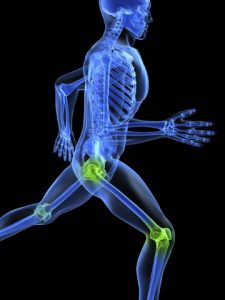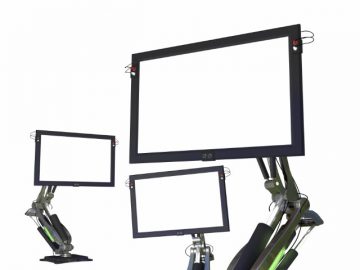
STUDENT INITIATIVES ($2500 max)
The Graduate Student Collaboration Fund supports cross-disciplinary and inter-departmental graduate student initiatives in the Faculty of Medicine. This application round we are inviting collaborative initiatives that work to enhance the student experience in the Faculty of Medicine in alignment with remote learning and networking, including applications that seek to better a sense of community across different departments and programs, and applications that promote wellness support among the graduate student body.
Eligibility:
- The primary applicants must be registered graduate students in the UBC Faculty of Medicine, and represent at least two different Graduate Programs;
- Only one of the primary applicants should submit the online application, and act as contact for the application process;
- The proposed project must be innovative and must cross disciplinary and departmental boundaries;
- The proposal must have clearly stated goal(s), a feasible timeline, and budget;
- The funding is limited to one-time-only, with a maximum duration of 12 months. Any funds remaining at the end of the 12 months must be returned to the Faculty of Medicine Office of Graduate and Postdoctoral Education, however a one-time extension of funding for a maximum of 6 months may be considered
- The fund cannot be used for projects that are carried out for course credit (including thesis work).
Application Process – Stage 1:
- Applicants submit a letter of intent (LOI) (1-page maximum, single-spaced), which must include:
-
- A brief summary of the initiative and why it would be beneficial to graduate students (1/2 page).
- Projection of possible expenses, with estimated amounts if known (1/2 page).
- Submit LOI online (via Qualtrics).
Letter of intent submission deadline: Planning to relaunch in 2022.
- The Graduate Student Advisory Group (GSAG) reviews the letter of intent and provides constructive feedback, which should be incorporated into final proposals by applicants.
Applicants will receive feedback from GSAG a week after the submission deadline.
Application Process – Stage 2:
- Applicants submit final proposals, which should include:
-
- A detailed description of the proposed initiative, including how the initiative fulfills the Graduate Student Collaboration Fund objectives and eligibility criteria, its potential impact on the graduate student experience, and an outline of how the initiative will be managed by the proposed group members (2-pages maximum, single-spaced).
- A detailed budget of the initiative (1-page maximum, single-spaced). Importantly, budget items must be listed individually, and the rationale behind the allocated cost per item should be clear. The budget should also indicate any other sources of funding, including requests for matching funds (e.g. department donations or fundraising initiatives);
- The Faculty Sponsor Form signed by the primary contact’s Program Director/Advisor.
- Proposals are submitted online (via Qualtrics).
Proposal submission deadline: February 12, 2021, before noon PST
Late applications will not be accepted.
Please refer to the Guidelines and FAQs for more information.
FUNDED PROJECTS*
*Projects between 2016 and 2019 were sponsored by the Graduate Student Initiative Fund. This program was was changed to a Graduate Student Collaboration Fund in 2020. For access to the legacy page, click on this link.

Research-Partnership Initiative: Rehan Jessa, MSc Candidate in Experimental Medicine, and Alec Yu, MD Candidate, were successful in their application for funding. The goal of this project is to longitudinally evaluate the health and social outcomes of homeless persons receiving transitional care following hospital discharge. St. Paul’s Hospital is facing new challenges caring for patients on borders of extreme poverty and social marginalization. Rehan and Alec’s group partnered with St. Paul’s Transitional Care Centre (TCC) and the Canadian Mental Health Association (CMHA) to evaluate program fidelity and identify possible areas of improvement at the TCC. Their team utilizes questionnaires, qualitative interviews, and medical chart reviews to collect sociodemographic and health information from TCC clients. This project assesses the program’s impact on short and long term health outcomes to improve healthcare and access to social services for vulnerable and marginalized persons.

Educational Initiative: Members of the Fashion Meets Science initiative were successful in their application for funding to create a science-inspired fashion line for Vancouver Kids Fashion Week. This initiative, developed by Healthy Starts (HS) Trainees at BC Children’s Hospital Research Institute (BCCHR), proposed to work with designers from the fashion program at Vancouver Community College (VCC) to create a science-inspired fashion show entitled “The Model Organisms collection” as a venue for public outreach. This was an exciting way to educate a public audience about the importance of basic scientific research and to provide unique training to UBC graduate students to develop communication skills with non-technical audiences. The fashion line consisted of 8 looks and was presented at Vancouver Kids Fashion Week in October 2019. More information about this project is available on the GSS website or on Instagram.

Research-Partnership Initiative: Roza Vaez Ghaemi, a PhD student in the School of Biomedical Engineering and her team were successful in their application for funding. This project’s objective was to systematically test a series of polymer composites as corneal substitutes and identify the optimum construction materials and methods. The current worldwide shortage of corneal tissues is a pressing issue and classical biomaterials and tissue engineering approaches have yet to be successful in reliably providing a suitable long-term solution. This one-year project identified an artificial cornea substitute made of suitable transparent biomaterials and addressed the issue of donor shortage for corneal transplants.

Educational Initiative: Tristan Dellazizzo Toth, a current PhD student, was successful in his application for funding. Tristan’s project was to offer a basic optics educational lab and training seminar to graduate students in the Faculty of Medicine. Mastery of basic knowledge of how to design and construct optical systems is highly beneficial for any early scientists conducting research involving imaging. The goal of this project was to create a teaching tool available for students that would give them a better understanding of a commercial system and allow them to create a custom-built fluorescence based microscope in the future. The project is designed to create a long-term educational tool which can and will be steadily built-up and improved over time to better serve students in the Faculty of medicine for years to come.

Research-Partnership Initiative: Jessica Pilsworth, was successful in her application to facilitate her collaboration with Dr. Mohamed Bedaiwy to perform genetic screening of cancer-associated mutations to better understand unexplained recurrent pregnancy loss (RPL). RPL is a clinical disorder defined by two or more pregnancy losses and can occur in up to 5% of women. Although a subset of RPL cases can be contributed to chromosomal rearrangements, the absence of cytogenetic abnormalities for patients with RPL suggests that non-cytogenetic etiologies exist. The recent finding from our team that endometrial tissue collected from normal non-cancer women harbour mutations in known cancer genes raises the possibility that such mutations may be associated with pathology or issues beyond cancer development. This work on characterizing the genomic features of RPL patients has improved our understanding of biological pathways that may be involved in unexplained RPL. Moreover, by identifying disrupted pathways and mutated genes, potential targeted therapy or Precision Medicine for effective female reproduction may be developed.

Research-Partnership Initiative: Mark Trinder, was successful in his application to enable his interdisciplinary team to generate clinical genetic reports to improve the management of cardiovascular disease. At the start of their project, there was no efficient process for providing clinically actionable results to affected patients and their clinicians. Mark’s team implemented a platform that has generated upwards of 750 clinical reports for patients participating in research-based genetic testing studies. These clinical reports provide important diagnostic, prognostic, and treatment decision-related information. This service’s ongoing goal is to use genetics to identify individuals at high risk of premature cardiovascular disease in order to effectively use lifestyle counseling and pharmacological therapy to prevent adverse events from ever occurring.

Career Initiative: Graduates from the Cell Biology and Physiology Graduate Society (CPhyGS) were successful in their application for funding a re imagining of their existing event “Careers Night.” This event allows for professional development through networking and the cultivation of a sense of community among graduate students. Noticing a lack of interdisciplinarity in their event, the students decided to work towards bringing together more diverse career and industry mentors in the hope that it would attract a more diverse population of students. With the newly revamped Careers Night, the students provided better support for Faculty of Medicine graduate students in their pursuit of career development. More than this, they helped to connect students with industry partners and mentors, exposing them to new job options and employment opportunities.

Educational Initiative: The graduate student organizers of new Journal Club: “Cells meet Cognition” were successful in their application for funding. This journal club seeks to unite human and animal neuroscience research labs at UBC through facilitating monthly one hour meetings on diverse topics. The model of the club pairs a researcher from human neuroscience with one from animal neuroscience investigating a similar research question to allow for innovative conversation. By providing a platform for knowledge exchange and discussion,”Cells meet Cognition” bridges the gap between animal and human Neuroscience research. If you are interested in joining the Journal Club, please contact the organizers at cellsmeetcognition@gmail.com.

Educational Initiative: Members of the Neuroscience Graduate Student Association were successful in their application for funding for their online video series “BrainBoards.” This project involves producing a series of online videos meant to bridge communication between medical researchers and the general public. Each video in the series is presented using white-board animations and narrated by two UBC Neuroscience graduate student researchers, one of whom is engaged in clinical research while the other pursues foundational science. As a frame for this information, a journalist narrates current and important findings in neuroscience, highlighting broad implications, and limitations, of the current field. Ultimately, Brain Boards seeks to not just facilitate unidirectional communication by researchers to the lay public, but also provide a venue by which members of the public can in turn provide feedback on neuroscience research as it develops. The videos are all live and constantly being updated, and can be accessed by visiting their YouTube channel.

Research-Partnership Initiative: Yuan Chao Tim Xue, a PhD student in the Pathology & Laboratory Medicine graduate program, was successful in his application for funding to facilitate collaboration with a Clinical Scientist at the BC Center for Excellence, a Clinical Microbiologist and a Medical Microbiologist at the BC Centre for Disease Control (BCCDC). This collaborative project engaged in the development of next generation sequencing (NGS) as a tool for diagnosing viral genetic materials in clinical cerebrospinal fluid (CSF) from individuals diagnosed with neurodegenerative conditions. The collaborators decided to tackle the challenge of diagnosing viral infections because of the dangers it poses by potentially altering neurons (leading to neuronal dysfunctions and potential neurological disorders). NGS reduces labour time and cost, and diminishes the number of pathogen variants that may escape the typical diagnostic techniques, and as such, is a superior alternative to diagnosing viral infections in human CSF; they hope that their preliminary results can help guide future studies.
 Educational Initiative: Three graduate students from the Neuroscience Graduate Student Association were successful in their application for funding for their proposed online communication platform: Brain Bytes. Brain Bytes is described as an “online knowledge dissemination tool” and is being created to allow graduate students to engage with the public in scientific discourse, educate the general public about science, and allow graduate students to learn about current values and preconceived notions about science, ultimately with the goal of bridging the gap between scientists and the general public. Graduate students will also have the unique opportunity to collaborate with students from the UBC School of Journalism program, which will also be involved in the program development, furthering the potential for interdisciplinary collaboration in this project. This project is expected to go live in 2018.
Educational Initiative: Three graduate students from the Neuroscience Graduate Student Association were successful in their application for funding for their proposed online communication platform: Brain Bytes. Brain Bytes is described as an “online knowledge dissemination tool” and is being created to allow graduate students to engage with the public in scientific discourse, educate the general public about science, and allow graduate students to learn about current values and preconceived notions about science, ultimately with the goal of bridging the gap between scientists and the general public. Graduate students will also have the unique opportunity to collaborate with students from the UBC School of Journalism program, which will also be involved in the program development, furthering the potential for interdisciplinary collaboration in this project. This project is expected to go live in 2018.
 Career Initiative: The Association of Population and Public Health Students was successful in their application for funding for Career Planning Programming for the students that they serve. This programming included several workshops focused on developing skills pertinent to building a public health career in both academic and non-academic settings, including job searching, resume writing, poster design, and networking. The workshop series concluded with a School of Population and Public Health Soiree, in which alumni currently employed in a variety of public health sectors presented their career paths and met with current students in order to discuss interdisciplinary and non-traditional careers.
Career Initiative: The Association of Population and Public Health Students was successful in their application for funding for Career Planning Programming for the students that they serve. This programming included several workshops focused on developing skills pertinent to building a public health career in both academic and non-academic settings, including job searching, resume writing, poster design, and networking. The workshop series concluded with a School of Population and Public Health Soiree, in which alumni currently employed in a variety of public health sectors presented their career paths and met with current students in order to discuss interdisciplinary and non-traditional careers.
Educational Initiative: The Neuroscience Graduate Student Association was successful in acquiring funding for their “Neuroscience Through the Ages” seminar series, which will present the history and fundamentals of neuroscience in an interesting and accessible manner. A collaborating student and faculty member will be involved in summarizing the key papers, findings, debates, and methodological advances of specific historical researchers across many decades. This information will be made publicly available through an online interactive timeline and public events. The integrative approach of both public events/lectures and an online interactive timeline aims to explore the rich past of neuroscience research, which has laid the foundation for current techniques and research questions. By bringing past research to the forefront, participants will be better equipped to digest the findings and significance of current neuroscience publications, as well as gain an understanding of the importance of ongoing basic and clinical research to address the multitude of unanswered questions that remain.
 Career Initiative: The Rehabilitation Sciences Executive Committee was successful in acquiring funding for their Rehabilitation Sciences Career Workshop Series, which worked to expose current students to common non-academic career pathways taken by Rehabilitation Sciences program graduates with training in clinical research. This workshop series provided a venue for graduate students to learn about alternate career pathways, tailored towards UBC Faculty of Medicine students with rehabilitation-relevant graduate degrees, as well as students in other programs who will be pursuing careers in the healthcare sector. This workshop connected graduate students to leaders outside of the university, who shared their personal experience and advice on how to prepare for post-graduate careers, and it strengthened ties between the UBC Rehabilitation Sciences program and their alumni network.
Career Initiative: The Rehabilitation Sciences Executive Committee was successful in acquiring funding for their Rehabilitation Sciences Career Workshop Series, which worked to expose current students to common non-academic career pathways taken by Rehabilitation Sciences program graduates with training in clinical research. This workshop series provided a venue for graduate students to learn about alternate career pathways, tailored towards UBC Faculty of Medicine students with rehabilitation-relevant graduate degrees, as well as students in other programs who will be pursuing careers in the healthcare sector. This workshop connected graduate students to leaders outside of the university, who shared their personal experience and advice on how to prepare for post-graduate careers, and it strengthened ties between the UBC Rehabilitation Sciences program and their alumni network.
Educational Initiative: The SciCATS Team—comprised of professors, postdoctoral fellows, and graduate students from various programs within the Faculty of Medicine as well as the Faculties of Education, Interdisciplinary Studies and Science—successfully obtained funding to help develop their training program. The SciCATS program provides open access, modular science communication training through in-person workshops and online videos. This program is designed to facilitate effective science communication , an essential component to being a successful scientist as well as to communicating scientific findings with the general public. To learn more about SciCats, visit: http://scicats.org/.
Contact
Please contact the Research Education Facilitator at med.research@ubc.ca if you have any questions regarding the Graduate Student Initiative Fund.

